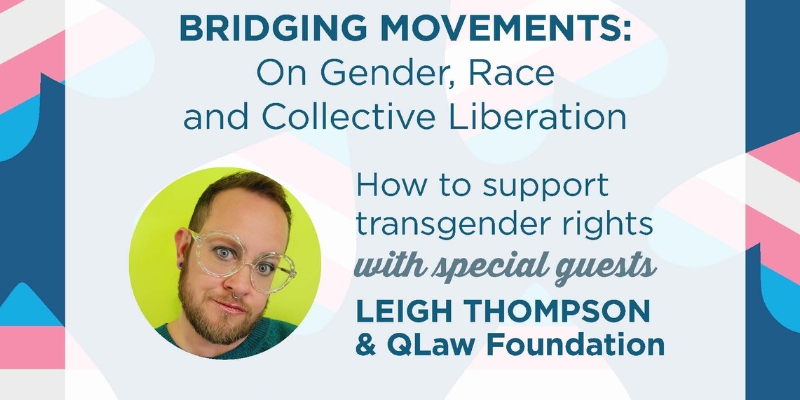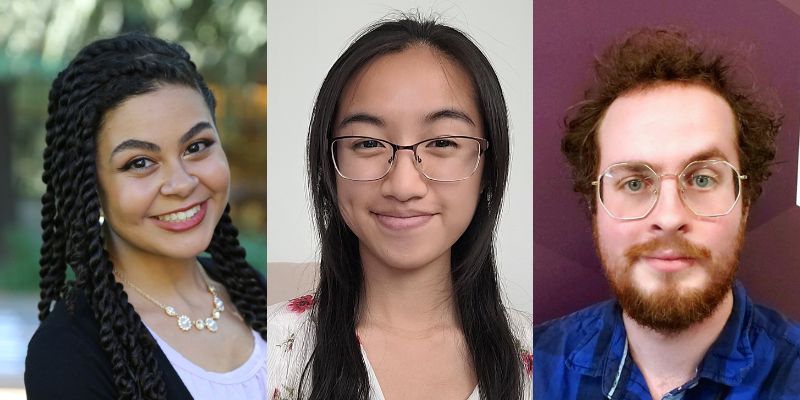
Rental Partner: The Endowment for Equal Justice presents
Bridging Movements
On Gender, Race and Collective Liberation

Town Hall Seattle and UW Engage Science present
UW Engage 2024
Note: UW Engage events are approximately 90 minutes long.

Hear from UW students about their research on the tiny cell protectors of your brain, microbes that live in your gut, and the next generation of clean energy technology.
Sydney Floryanzia
Sydney studies the tiny but mighty cell protectors of your brain to engineer better methods of treating brain disease.
In our brains, there is a specialized collection of cells and proteins called the blood-brain barrier that shields your brain from harmful substances. Though this barrier is necessary for the brain to function, it presents a major challenge to delivering medicines and therapeutics needed to treat brain disease. Nanoparticles are an emerging platform for drug delivery as they can be engineered to pass through the blood-brain barrier and gain entry into the brain. Investigating how brain cells interact with nanoparticles when the brain is healthy and damaged from injury can better inform drug design, open up new possibilities for treatment, and allow us to treat diseases once thought to be incurable.
Sydney Floryanzia is a chemical engineering Ph.D. student at the University of Washington, where she works on tools and methods to better investigate how injured brain cells respond to therapeutics. Some of these tools include isolating specific brain cells of interest, using whole hemisphere brain slices, and lots of laser microscopy.
Monica Tschang
Instead of giving a mouse a cookie, Monica gives her mice a…smellier treat to figure out what the bacteria in our gut have to say to our brains when we’re stressed as 💩
Your brain can talk to every part of your body, including the parts that are not human. Trillions of microbes live in your gut, and they’ve played an important role since the day you were born because they can send messages to your brain. These conversations don’t just result in the butterflies you feel in your stomach before the stress of a performance or a first date, but also in severe outcomes after more life-threatening trauma. For example, blast injury (exposure to explosions) traumatizes the gut microbes, which then can relay panicked messages to the brain and contribute to post-traumatic stress disorder. Using a less-than-glamorous technique, we can start to understand the types of messages these microbes send and how we can prevent or intercept them with new medicines.
Monica Tschang is a neuroscience PhD student studying how the world of microbes inside our guts plays a role in how we respond to stress. She studies a pretty severe example of stress, as she is working to understand how gut microbes might drive symptoms of post-traumatic stress disorder in people exposed to explosives in areas of conflict.
Aaron Thomas
Aaron opens up batteries to understand how they work at a molecular level and develop the next generation of clean energy technology.
Aaron Thomas is a Clean Energy Institute Fellow and Ph.D. student in the Jun Liu group, at the University of Washington Department of Materials Science. Their research centers on characterization and understanding of the interphases formed in lithium metal batteries, and how developing that understanding can lead to better energy storage design. They have also been active in scientific communication and outreach, aiming through their work to uplift fellow queer and neurodivergent students in STEM spaces, as well as to spread understanding in the general public of clean energy technologies.
Presented by Town Hall Seattle and UW Engage Science.

Rental Partner: The Endowment for Equal Justice presents
On Gender, Race and Collective Liberation

Rental Partner: Mehfil Nights presents
Coke Studio 2.0

Rental Partner: Mehfil Nights presents
Coke Studio 2.0